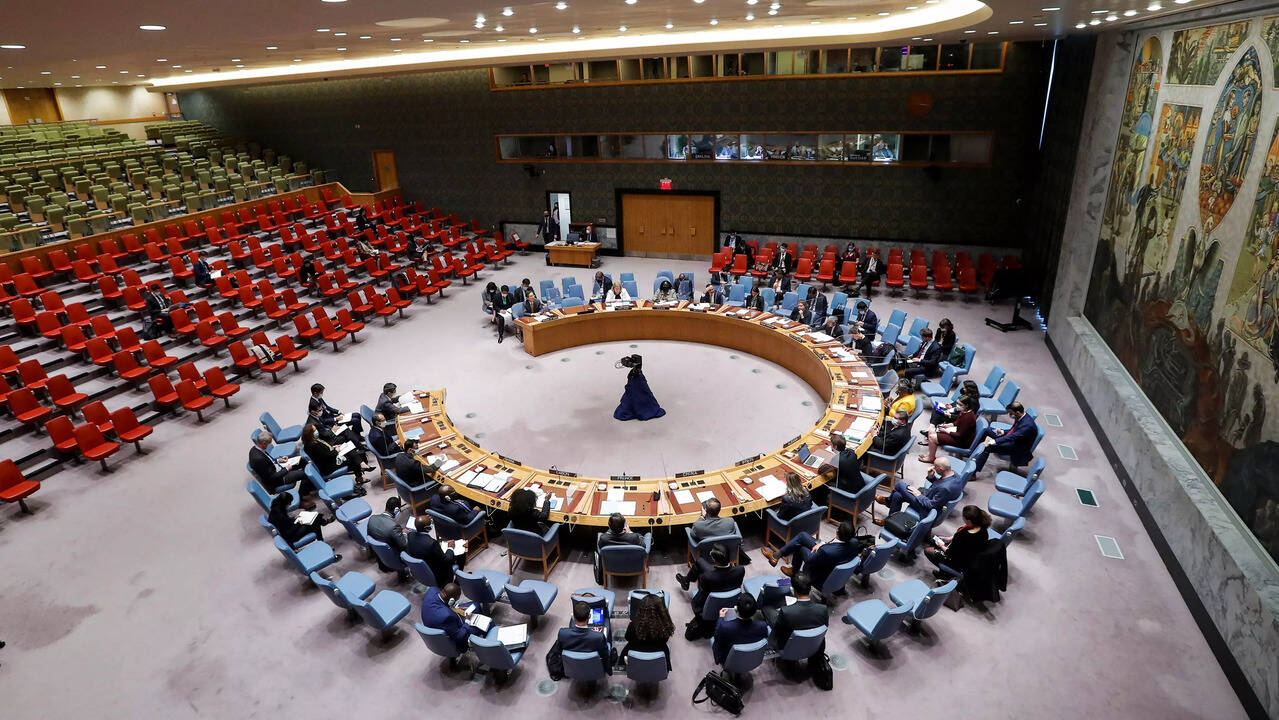
Speaking at the open debate on ‘The United Nations Organization: Looking into the Future’, Harish asserted that the people of Jammu and Kashmir ‘exercise their fundamental rights in accordance with India’s time-tested democratic traditions and constitutional framework,’ adding that such concepts are ‘alien to Pakistan.’
Photo : REUTERS
The Union Territory of Jammu and Kashmir “has been, is, and will always be an integral and inalienable part of India”, India’s Permanent Representative to the United Nations, Parvathaneni Harish, said at the UNSC Open Debate, as he called upon Pakistan to end the “grave and ongoing human rights violations in the areas illegally occupied by it,” particularly in Jammu and Kashmir.
Speaking at the open debate on ‘The United Nations Organization: Looking into the Future’, Harish asserted that the people of Jammu and Kashmir “exercise their fundamental rights in accordance with India’s time-tested democratic traditions and constitutional framework,” adding that such concepts are “alien to Pakistan.”
“Let me emphasise that the Union Territory of Jammu and Kashmir has been, is, and will always be an integral and inalienable part of India. The people of Jammu and Kashmir exercise their fundamental rights in accordance with India’s time-tested democratic traditions and constitutional framework. We, of course, know that these are concepts alien to Pakistan,” he said.
Outlining India’s vision rooted in Vasudhaiva Kutumbakam — the idea of the world as one family, he said the outlook not only that “anchors our worldview, but also the reason why India has consistently advocated for justice, dignity, opportunity and prosperity for all societies and peoples”.
“It is also the reason why India places its faith in multilateralism, international partnerships and cooperation,” he said.
The UN, he said, had become a “beacon of hope” for peace and decolonisation but now faces questions about its “relevance, legitimacy, credibility, and efficacy.”
“The theme of this debate gains great salience at a time when the world’s largest multilateral organisation – the United Nations – faces questions related to relevance, legitimacy, credibility, and efficacy,” he noted.
He added, “This organisation was founded in the aftermath of the Second World War as a beacon of hope for international peace and security. It advanced decolonisation; it has been instrumental in the emergence of new nation-states in the Global South; it drew up ambitious markers for economic growth, social development, and prosperity; it focused our minds on global challenges such as pandemics, countering terrorism and climate change.”
